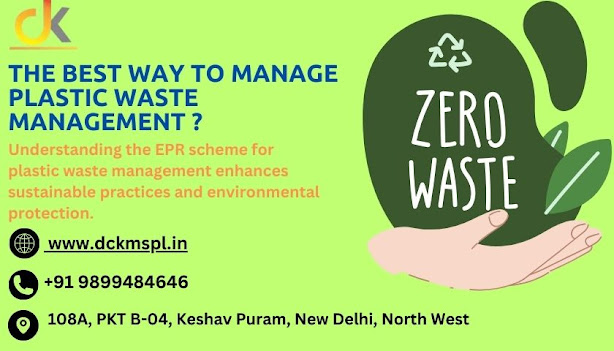Plastic waste has become a global environmental concern due to its persistence in the environment and adverse impact on ecosystems. Finding effective ways to manage plastic waste is crucial for environmental sustainability and human health. Here, we explore some of the best way for managing plastic waste management efficiently and responsibly.
1. Reduce Plastic Consumption
The first and most effective step in managing plastic waste is reducing its consumption. This can be achieved through:
Promoting reusable alternatives: Encouraging the use of reusable bags, bottles, and containers reduces the need for single-use plastics.
Supporting plastic-free initiatives: Businesses and communities can adopt policies that minimize or eliminate the use of unnecessary plastics.
2. Recycling
Recycling plays a vital role in diverting plastic waste from landfills and reducing its environmental impact. Effective recycling practices include:
Separating plastics: Sorting plastics by type makes recycling more efficient and increases the quality of recycled materials.
Investing in recycling infrastructure: Governments and businesses should invest in modern recycling facilities to handle different types of plastics effectively.
3. Extended Producer Responsibility (EPR)
EPR is a policy approach that holds manufacturers responsible for the entire lifecycle of their products, including plastic waste management. Key aspects of EPR include:
Product redesign: Encouraging manufacturers to design products that are easier to recycle or biodegrade.
Collection and recycling programs: Implementing collection systems and partnering with recycling facilities to manage plastic waste responsibly.
4. Education and Awareness
Raising public awareness about the impact of EPR registration for plastic waste management and promoting responsible consumer behavior is essential. This can be achieved through:
Educational campaigns: Informing individuals and communities about the importance of reducing, reusing, and recycling plastics.
Partnerships with schools and organizations: Collaborating with educational institutions and NGOs to promote sustainable practices.
5. Innovation in Alternatives
Research and development of alternative materials to plastic can significantly reduce dependency on traditional plastics. Examples include:
Biodegradable plastics: Developing plastics that break down more easily in the environment.
Natural fiber composites: Using natural fibers as alternatives to synthetic plastics in certain applications.
Conclusion
Effective management of plastic waste requires a combination of strategies, including reducing consumption, improving recycling infrastructure, implementing EPR policies, educating the public, and innovating in materials. By adopting these approaches, we can mitigate the environmental impact of plastic waste and move towards a more sustainable future.

